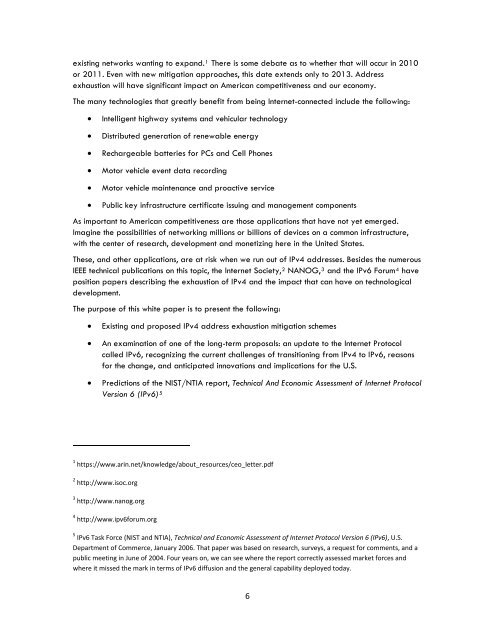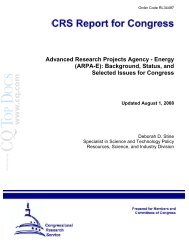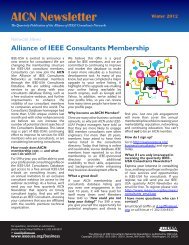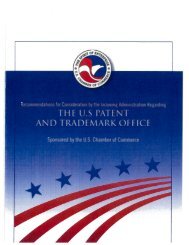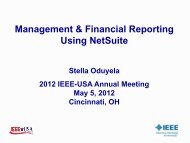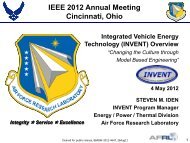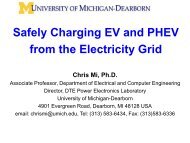Next Generation Internet: IPv4 Address Exhaustion ... - IEEE-USA
Next Generation Internet: IPv4 Address Exhaustion ... - IEEE-USA
Next Generation Internet: IPv4 Address Exhaustion ... - IEEE-USA
You also want an ePaper? Increase the reach of your titles
YUMPU automatically turns print PDFs into web optimized ePapers that Google loves.
existing networks wanting to expand. 1 There is some debate as to whether that will occur in 2010<br />
or 2011. Even with new mitigation approaches, this date extends only to 2013. <strong>Address</strong><br />
exhaustion will have significant impact on American competitiveness and our economy.<br />
The many technologies that greatly benefit from being <strong>Internet</strong>-connected include the following:<br />
• Intelligent highway systems and vehicular technology<br />
• Distributed generation of renewable energy<br />
• Rechargeable batteries for PCs and Cell Phones<br />
• Motor vehicle event data recording<br />
• Motor vehicle maintenance and proactive service<br />
• Public key infrastructure certificate issuing and management components<br />
As important to American competitiveness are those applications that have not yet emerged.<br />
Imagine the possibilities of networking millions or billions of devices on a common infrastructure,<br />
with the center of research, development and monetizing here in the United States.<br />
These, and other applications, are at risk when we run out of <strong>IPv4</strong> addresses. Besides the numerous<br />
<strong>IEEE</strong> technical publications on this topic, the <strong>Internet</strong> Society, 2 NANOG, 3 and the IPv6 Forum 4 have<br />
position papers describing the exhaustion of <strong>IPv4</strong> and the impact that can have on technological<br />
development.<br />
The purpose of this white paper is to present the following:<br />
• Existing and proposed <strong>IPv4</strong> address exhaustion mitigation schemes<br />
• An examination of one of the long-term proposals: an update to the <strong>Internet</strong> Protocol<br />
called IPv6, recognizing the current challenges of transitioning from <strong>IPv4</strong> to IPv6, reasons<br />
for the change, and anticipated innovations and implications for the U.S.<br />
• Predictions of the NIST/NTIA report, Technical And Economic Assessment of <strong>Internet</strong> Protocol<br />
Version 6 (IPv6) 5<br />
1 https://www.arin.net/knowledge/about_resources/ceo_letter.pdf<br />
2 http://www.isoc.org<br />
3 http://www.nanog.org<br />
4 http://www.ipv6forum.org<br />
5 IPv6 Task Force (NIST and NTIA), Technical and Economic Assessment of <strong>Internet</strong> Protocol Version 6 (IPv6), U.S.<br />
Department of Commerce, January 2006. That paper was based on research, surveys, a request for comments, and a<br />
public meeting in June of 2004. Four years on, we can see where the report correctly assessed market forces and<br />
where it missed the mark in terms of IPv6 diffusion and the general capability deployed today.<br />
6


